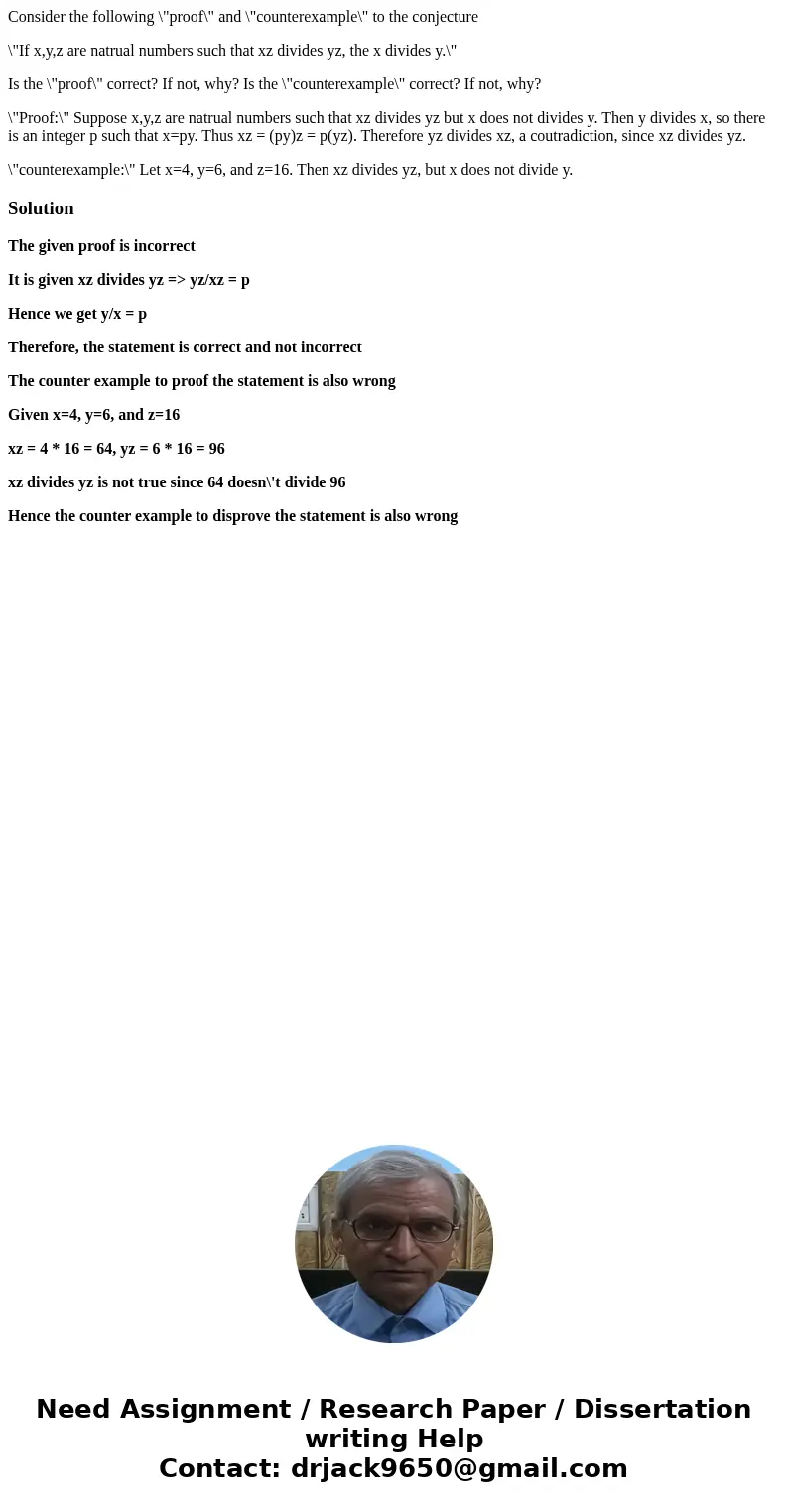Consider the following proof and counterexample to the conje
Consider the following \"proof\" and \"counterexample\" to the conjecture
\"If x,y,z are natrual numbers such that xz divides yz, the x divides y.\"
Is the \"proof\" correct? If not, why? Is the \"counterexample\" correct? If not, why?
\"Proof:\" Suppose x,y,z are natrual numbers such that xz divides yz but x does not divides y. Then y divides x, so there is an integer p such that x=py. Thus xz = (py)z = p(yz). Therefore yz divides xz, a coutradiction, since xz divides yz.
\"counterexample:\" Let x=4, y=6, and z=16. Then xz divides yz, but x does not divide y.
Solution
The given proof is incorrect
It is given xz divides yz => yz/xz = p
Hence we get y/x = p
Therefore, the statement is correct and not incorrect
The counter example to proof the statement is also wrong
Given x=4, y=6, and z=16
xz = 4 * 16 = 64, yz = 6 * 16 = 96
xz divides yz is not true since 64 doesn\'t divide 96
Hence the counter example to disprove the statement is also wrong

 Homework Sourse
Homework Sourse